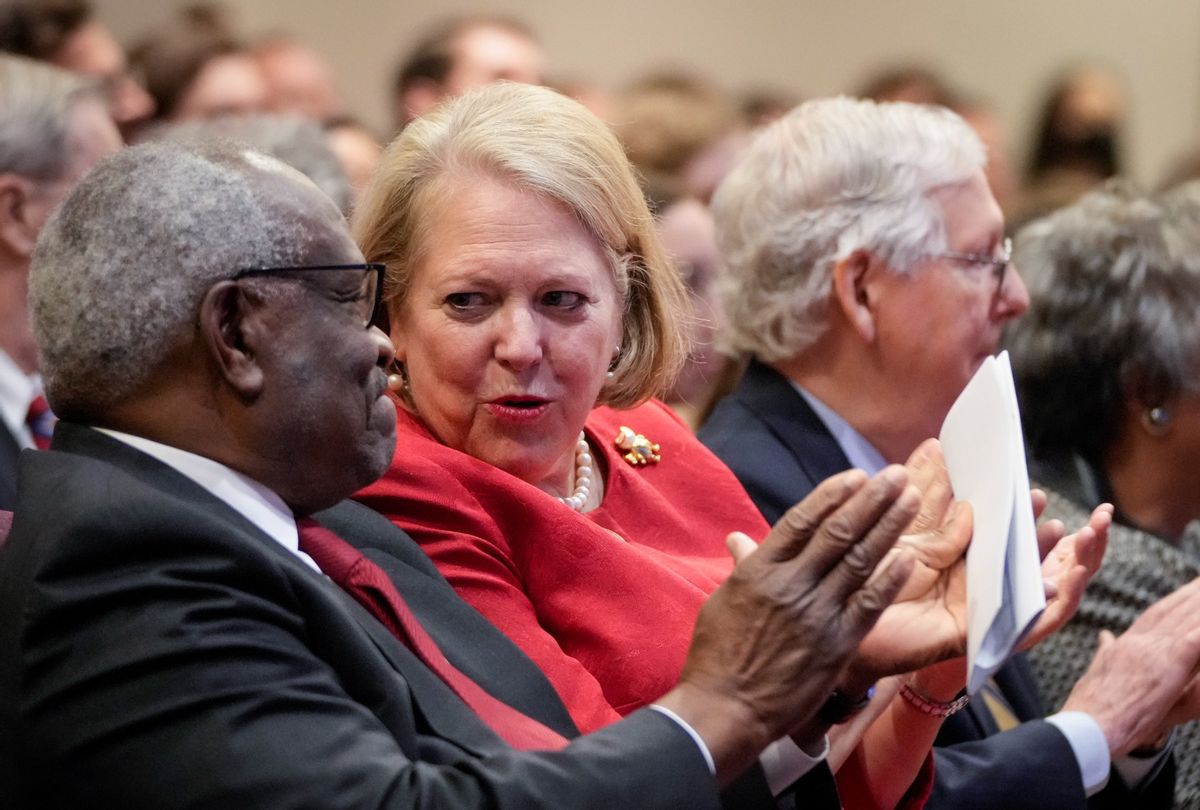Attorneys involved in former President Donald Trump's failed effort to overturn his election discussed how the "wild chaos" of Jan. 6 could pressure the Supreme Court to take up an election case — and may have had inside information about the court's deliberations, according to The New York Times.
Attorney John Eastman, who crafted Trump's strategy to use the Jan. 6 election certification to try to overturn his loss, said in an email exchange with other pro-Trump lawyers and campaign officials that he had learned of a "heated fight" among the justices about whether to hear an election case from Wisconsin.
"So the odds are not based on the legal merits but an assessment of the justices' spines, and I understand that there is a heated fight underway," wrote Eastman, two sources briefed on the email obtained by the House Jan. 6 committee told the Times. "For those willing to do their duty, we should help them by giving them a Wisconsin cert petition to add into the mix."
Kenneth Chesebro, another attorney involved in the effort who said he did not have the "personal insight that John has into the four justices likely to be most upset," replied that the "odds of action before Jan. 6 will become more favorable if the justices start to fear that there will be 'wild' chaos on Jan. 6 unless they rule by then, either way."
"Though that factor could go against us on the merits. Easiest way to quell chaos would be to rule against us — our side would accept that result as legitimate," he continued, before adding, "You miss 100 percent of the shots you don't take. A campaign that believes it really won the election would file a petition as long as it's plausible and the resource constraints aren't too great."
RELATED: Judge orders John Eastman to give Jan. 6 committee email that contains evidence of likely "crime"
The exchange came five days after Trump urged his supporters to "protest" at the Ellipse on Jan. 6 during the certification of President Joe Biden's victory.
"Be there. Will be wild!" Trump wrote.
The Supreme Court at that point had already rejected several other election-related lawsuits.
The committee is also looking at emails exchanged between Eastman, a former clerk to Supreme Court Justice Clarence Thomas, and Ginni Thomas, the justice's wife who was heavily involved in efforts to reverse Trump's loss, according to The Washington Post. It's unclear when the exchanges with Thomas occurred but they show that Thomas' "efforts to overturn the election were more extensive than previously known," two sources involved in the investigation told the outlet.
Thomas also discussed efforts to overturn the election with former White House chief of staff Mark Meadows and dozens of Arizona lawmakers. Thomas told Meadows she was "disgusted" with then-Vice President Mike Pence, who had refused to block the certification of Biden's win. And she pressured Arizona Republicans to set aside Biden's win in the state and "choose" their own alternate electors — which were key to Eastman's legally-dubious strategy to reinstalling Trump.
Want a daily wrap-up of all the news and commentary Salon has to offer? Subscribe to our morning newsletter, Crash Course.
Thomas has insisted that her husband was not involved in her efforts but critics argue that Justice Thomas should recuse himself from election-related cases given his wife's heavy involvement. The Supreme Court in January rejected Trump's request to block his White House records from the Jan. 6 committee with Thomas the only justice dissenting in the case.
The committee is now discussing whether to spend more time probing Thomas' role after previously deciding not to interview her, according to the report.
Rep. Elaine Luria, D-Va., told NBC News last week that Thomas was "not the focus of this investigation."
The emails were obtained after a federal judge ordered Eastman to turn over documents to the Jan. 6 committee, writing that Eastman and Trump "more likely than not" committed two felonies in their effort to overturn the election, including conspiracy to defraud the American people.
District Court Judge David Carter last week ordered Eastman to release another set of 150 emails, including one that he said contained evidence of a likely crime. Some of the emails also referred to three December 2020 meetings that Eastman had with "civic minded citizens of a conservative viewpoint," including messages from a person described as a "high-profile leader" inviting Eastman to speak at a December 8 meeting. The agenda for the meeting said that Eastman planned to discuss "State legislative actions that can reverse the media-called election for Joe Biden."
"The Select Committee has a substantial interest in these three meetings because the presentations furthered a critical objective of the January 6 plan," Judge Carter wrote, "to have contested states certify alternate slates of electors for President Trump."
Read more:



Shares